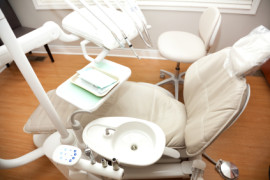In a review of cases over the course of a year, researchers at The Ohio State University found that the incidence of BRCA-positive individuals with head and neck cancers was significantly higher than baseline risk.
According to the National Cancer Institute, the BRCA genes produce tumor-suppressing proteins. When a woman inherits a mutated form of BRCA-1 or BRCA-2 she is at a drastically increased risk of developing breast and ovarian cancers. Men with the mutated BRCA gene(s) have an increased risk of prostate cancer. A person is BRCA-positive if he or she tests positive for the mutated gene.
In the study, whose findings were published in JAMA Otolaryngology–Head & Neck Surgery, BRCA-positive individuals had a 17 times higher incidence of salivary cancer than those who did not carry the genetic mutation.
Because breast tissue and salivary glands are similar, the study authors believe these findings call for more research into a possible genetic link between the two cancers. “In the future, patients with salivary-gland cancer and their family members might be referred for BRCA testing, or carriers of BRCA mutations might undergo surveillance for salivary gland cancers,” says Rebecca Nagy, MS, the study’s principal investigator
Study co-author Theodoros Teknos, MD called on physicians and dentists to be aware of this possible association:
“I would like physicians and dentists to realize that BRCA mutations carry risks for salivary gland cancer as well as breast cancer, and to remember that salivary glands include not only the paired parotid glands and submandibular glands but also innumerable minor salivary glands in the oral cavity,” Teknos says.
As genetics continue to play an increasingly greater role in healthcare, it’s important for physicians and dentists to communicate about the implications of genetic factors on their patients’ oral and overall health.


